FARM OF THE FUTURE
daily needs
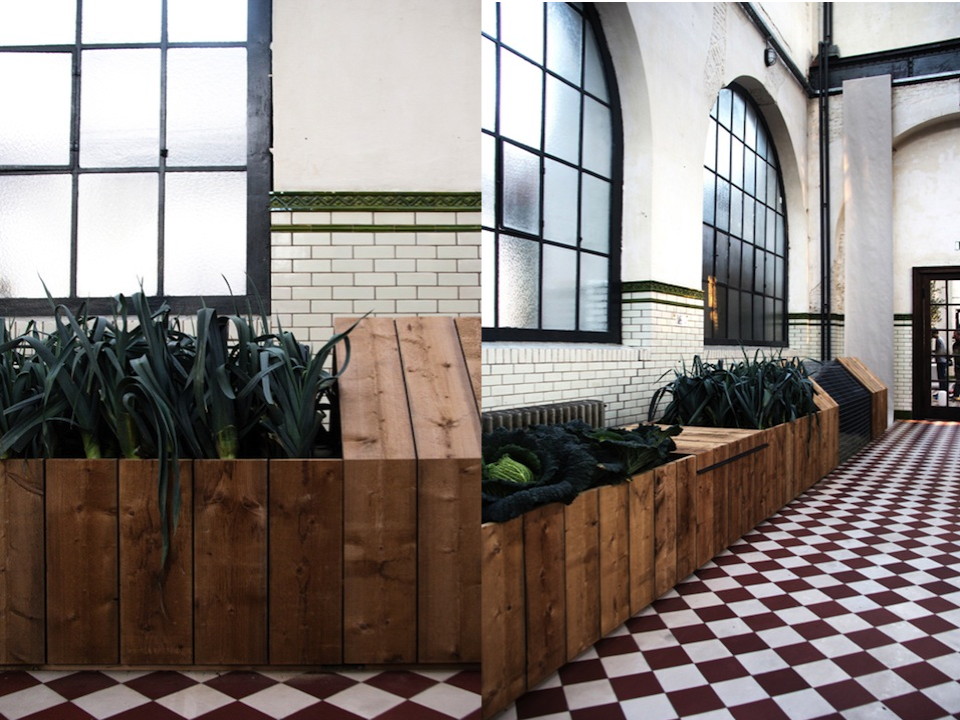
In early 2008, Lidewij Edelkoort said that farming will be our future : " A remarkable and unforeseen reversal of history and after the industrialisation and virtualisation periods of progress the world will return unconditionally to cultivating what will be the most rare and cherished; earth! "
Today, we are happy to share with you a confirmation of this major forecast.
As urban farming had been forecasted a long time ago, global architecture project and design products are flourishing all over the world. This is a major challenge for the future, as 75 % people will live in an urban environment around 2040-2050.
"Daily Needs" is designed by Studio Segers, a creative family corporation founded in 1989 by Rita Westhoven (graphic designer) and Win Segers (product designer). This Modular Chicken Coop & Garden will make you mainly self sufficient. It's an innovative concept through its modularity, flexibility and functionality.You can assemble different parts: a chicken shack for your daily egg , a vegetable and herb-growing recipient, a composting box,a garden tools storage, a rabbit hutch, a rainwater collection.
"Daily Needs" can be placed in city gardens, terraces or public places. It is made from thermally treated pinewood from European forest. To be ecofriendly, all the different pieces are flat packed, and the parts can be easily assembled by the consumer.
This project has already won the Ovam Ecodesign Award Pro 2013. The production is expecting in spring 2014. The prototype can be seen at Conflict and Design (C Mine Genk in Belgium) an exhibition of DesignVlaamderen and the Flemish Parlement in Brussels.
Sophie Hérolt Petitpas
Sophie Hérolt Petitpas is a french journalist free lance found of design and lifestyle. She is also passionate by astrology and its mythical and symbolic aspects. Curious and sensitive, she loved linking and describing her trend hunting with the eyes of mythology in her blog.
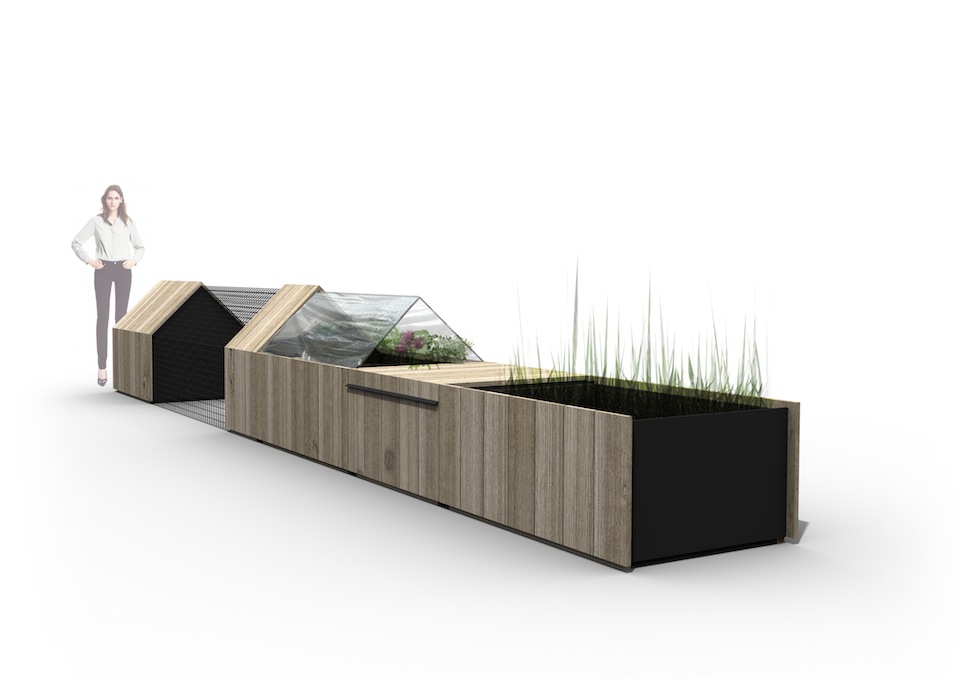
- Daily Needs by StudioSegers

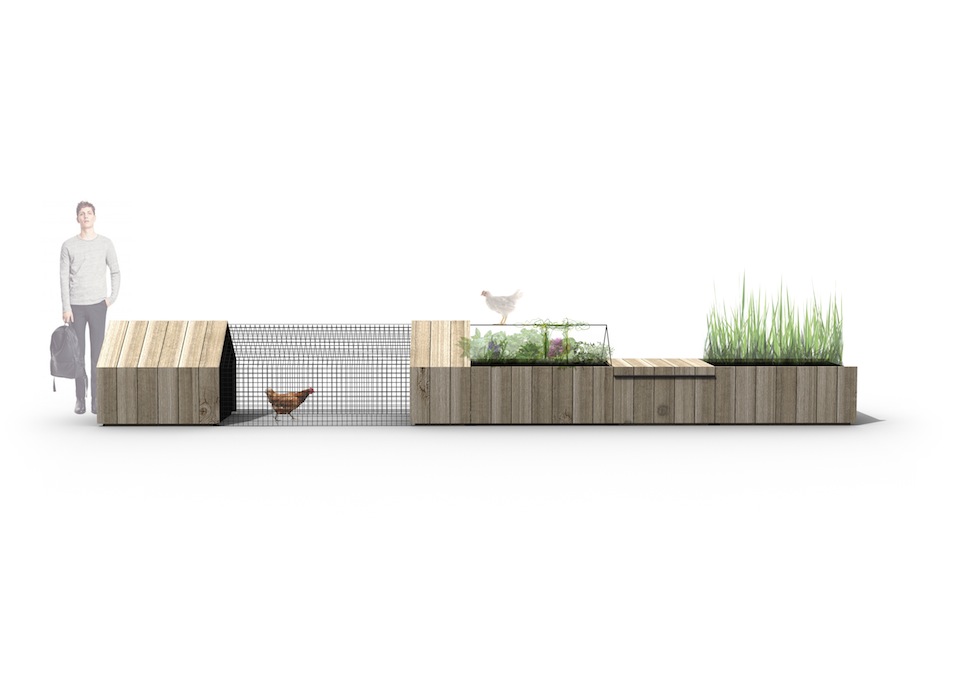
Daily Needs by StudioSegers
magic mushrooms
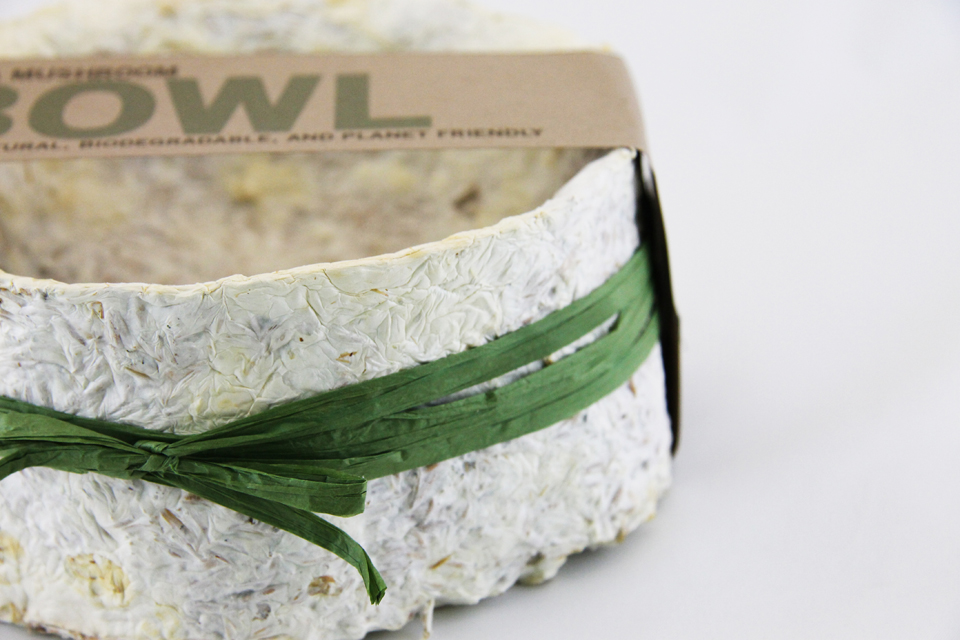
photo courtesy of ecovative
Ecovative has developed the worlds first materials made from… mushrooms! These eco-friendly, high performance materials are renewable and compostable.Ecovative don’t manufacture these materials, they grow them.
Today, this young company is producing packaging called EcoCradle® Mushroom™ Packaging. Great for replacing materials made of extruded polystyrene foam which aren’t eco-friendly.
EcoCradle is being used by major international companies selling furniture or technological devices to replace foam packaging.
It’s newest partner is Ford Motors, together they look forward to a fungus-based biodegradable material to be used for car bumpers, doors, and dashboards.
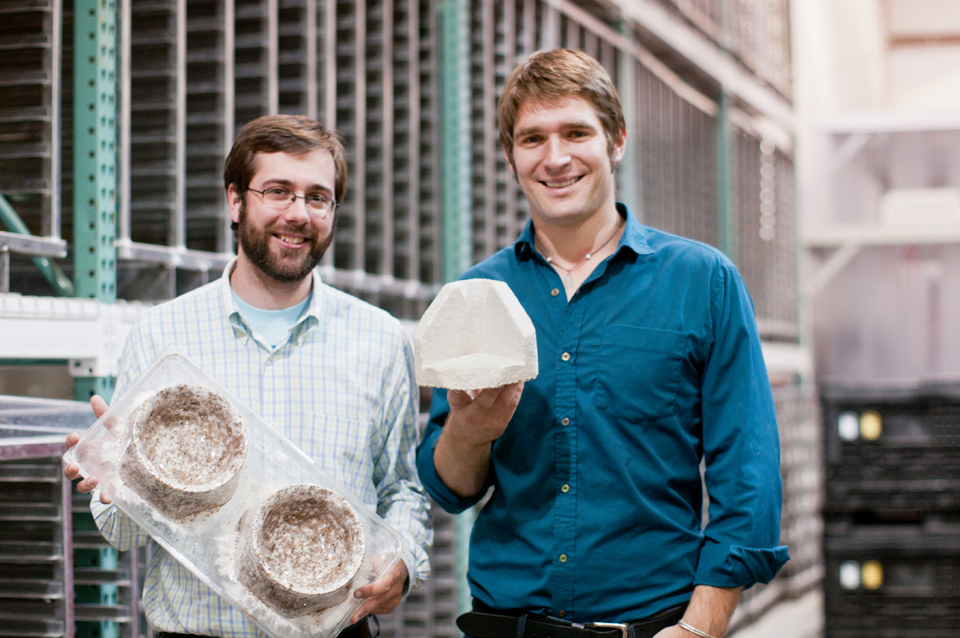
Gavin Mc Intyre & Eben Bayer founders of Ecovative
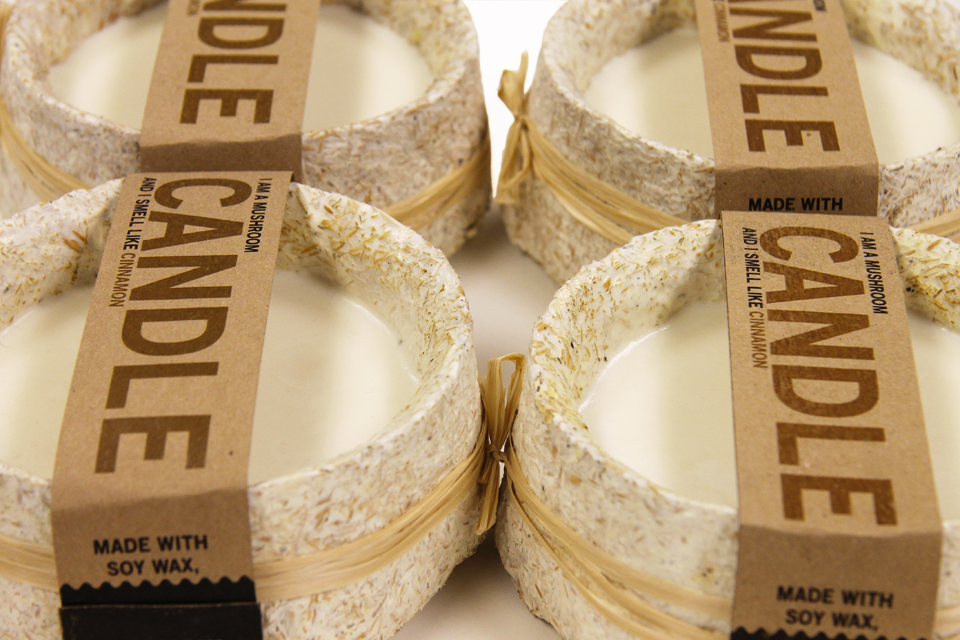
photo courtesy of ecovative
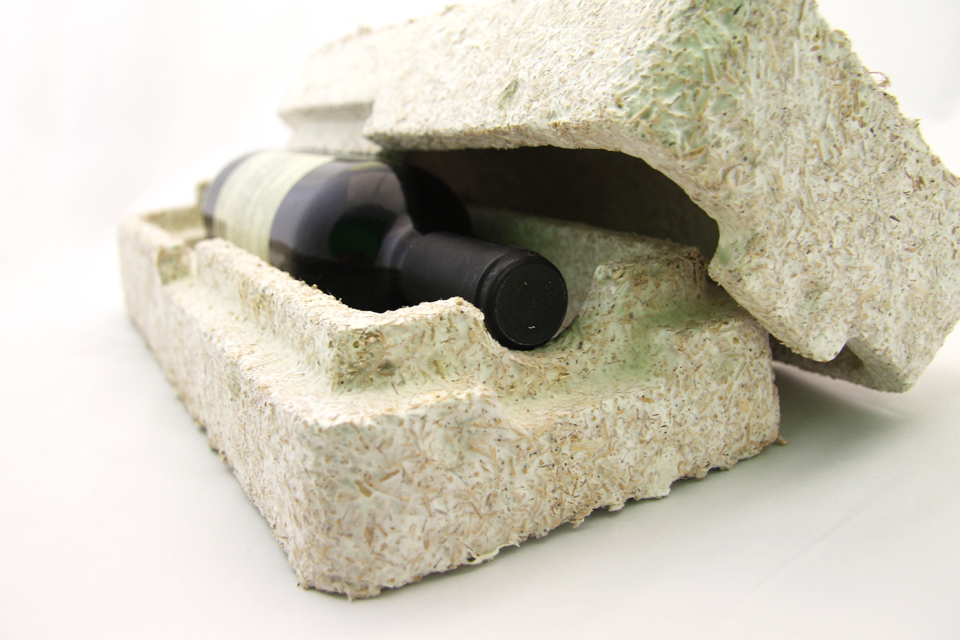
photo courtesy of ecovative
the vigilante gardener
“This week, I decided to break the law…in the gentlest way possible.”
Todd Bieber is a self-proclaimed vigilante gardener. A Brooklyn filmmaker by day, Bieber has recently joined the ranks of guerrilla gardeners — people everywhere who are seizing unused or underutilized land and putting it good use.
After repeatedly walking past a plot of neglected soil near his home in Brooklyn — caged by a metal fence and barbed wire — Bieber decided to take action.
Plans were drawn; flowers, seeds and plants were purchased; and a time was set. Bieber, and a few select companions, went to work at midnight.
Bieber’s project has promised to donate half of the garden’s proceeds to the owners of the land — should they choose to contact him— and if not, he plans to donate the fruits of his illegal labor to those in need. What better way to break the law?
from 2010 to 2050 or beyond
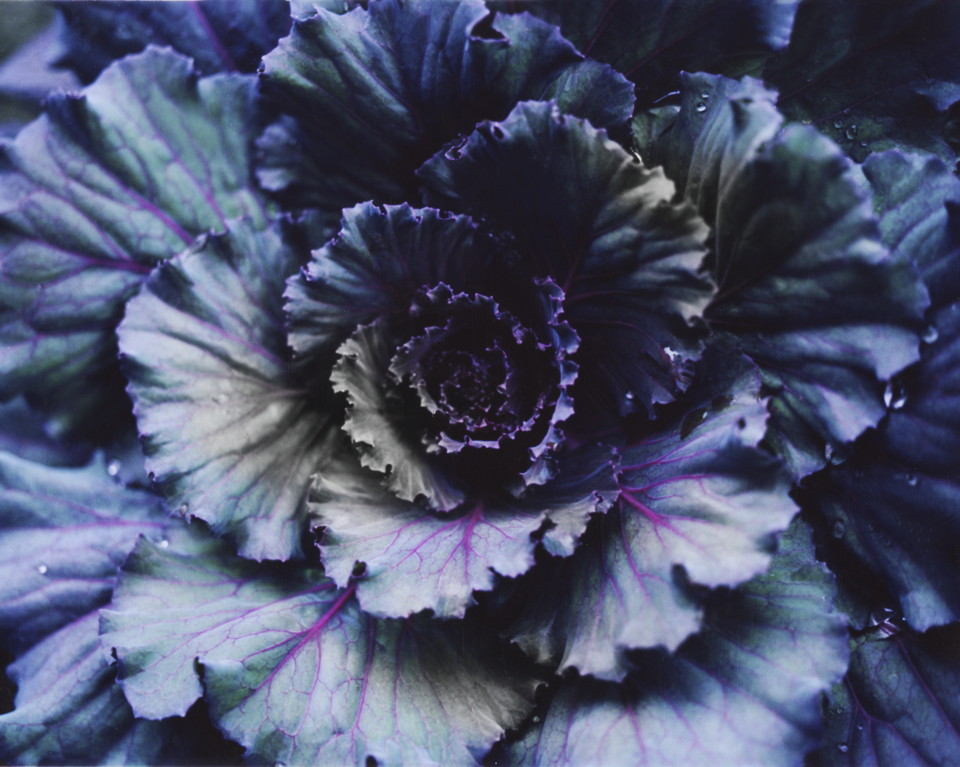
photo by marie taillefer
welcome to the 21st century!
recognising at last a truly new timeframe in which everything will be different for the years to come, with each aspect of our lives converting to green, inspired by the way nature functions and how life on the farm evolves.
the agricultural community will become the planet’s new elite, dominating our essential needs and inspiring years of farmer styles. after all, the farmers of the future will clothe us, house us, feed us, fuel us and hopefully even heal us. ultimately they will be able to engineer design and grow furniture in a symbiosis of technology and biology, and therefore rural and urban lifestyles will merge and become one; resulting in an inversed social landscape with a greener city and a more contemporary countryside.
we will see vertical farming in the inner cities (as currently studied by columbia university) and the return of smaller luxury farms in the countryside to handle the market for fresh niche products, while arid areas of the globe will be used to power solar plants and farm new kinds of bio fuels.
the farm will even become a destination for beauty and learning as well as a cradle for new retail strategies for the future.
design and lifestyle will interpret rural classics and invent a farming future with all ideas and gestures taken from the culture of agriculture: seeding, growing, gardening, landscaping, pollinating, hybridisation, harvesting, foresting and the breeding of animals and unknown species.
istrangely enough, the result is a truly avant-garde mission stretching far into the future, with landscaped floors, abstract seating, spheric objects, molecular lighting and robotic hybrids, far from the back-to-the-roots countrified movement of the last century. this is not a romantic escapist revival but an essential survival spirit running fast towards a brand new future.
in a remarkable and unforeseen reversal of history and after the industrialisation and virtualisation periods of progress the world will return unconditionally to cultivating what will be the most rare and cherished; earth!
—li edelkoort, 2008
2011-05-21 14:14:03
2011-05-20 11:35:27
2011-03-18 08:01:15
unearthing identity
 concept Atelier NL
concept Atelier NL concept Atelier NL
 concept Atelier NL
concept Atelier NL concept Atelier NL
Industrialisation and globalisation produced several generations of anonymous, emotionless design. Since the onset of the new century, we have witnessed a shift toward conscious consumerism, as materials, manufacturing processes and ethics are all examined. Knowing a product’s author and questioning its origin have thus become tantamount.
There is no more significant provenance for man than the earth itself. While offering a treasure trove of information into our planet’s history and evolution, the earth’s soil is a relatively unexplored resource. Tapping into this natural lexicon of topographical and evolutionary identity, Lonny van Ryswyck and Nadine Sterk of the collective Atelier NL began Fieldwork,
a research project to help understand their homeland through the soil composition and agricultural aspects of the Netherlands’ Noordoostpolder municipality, a relatively new region created in the early 1940s from land reclaimed from the North Sea.
Using the samples they collected during Fieldwork, Atelier NL launched the Polderceramics collection, table service comprised of vessels created from the different clays. With naturally occurring colour and textural variations, they are unpolished and austere. Their shape and composition remind us of the traditional vessels that have nourished mankind for centuries. The fundamental principal of the collection is that the objects create a ‘baked map’, or visual geological history of the area.
farmville

Is the famous farming social network game developed by Zinga a virtual solution to our urban lives?
«Everything grows in FarmVille. Join your Facebook friends and live the rural dream.»
29 923 910 persons like farmville on facebook
designing edible ideas
 photo Proef
photo Proef photo Annie Collinge
Eating is an experience that goes well beyond functionality: it represents who we were, who we are, and who we aspire to be as individuals and a society. Our choice of food, how we grow it, where we buy it, how we prepare it, who we share it with, and how we dispose of it, is one of the most compelling and controversial subjects of our era. So much so that a new creative field—eating designer—has emerged to shed light on the environmental, psychological, emotional and social dimensions of this deceptively simple act.
The maxim 'you are what you eat' couldn't be a more suitable tagline for Dutch designer Marije Vogelzang. A pioneer of a new creative hybrid, she grows experiences using food as her medium. Like a farmer who harvests edible ideas, Vogelzang uses delightful, interactive installations to bring more than sustenance—fodder in the form of stories, history and sociability is brought to the table as well. By making food that resembles soil, inviting guests to pick and eat vegetables straight out of the earth, and creating clothes that sprout herbs, she's planted the principles of farming in a new cultural context, giving it a fresh, fertile frame in which to grow.
Another country

Another Country makes contemporary craft furniture. The designs are archetypal, familiar and unpretentious . Those honest forms are full of spirit and functionality.
TED: Birke Baehr: What's wrong with our food system
Carina Sohl

The Swedish leather artist Carina Sohl has specialized in the development of a new method to design and hand-emboss patterns on leather, using wild natural plants from the Swedish country-side.
the city girl farm

The chicken footstools are handrafted in Kansas, USA. Their structure is formed from fallen wood logs and finished with bronze cast feet and beaks. They are upholstered with several layers of hand-felted wool and alpaca fibers.
A school garden
http://www.edutopia.org/edibleschoolyard-school-garden-video
The Edible Schoolyard (ESY), established in 1995, is a one-acre garden and kitchen classroom at Martin Luther King, Jr. Middle School in Berkeley, California, USA. It is a program of the "chez Panisse Foundation" a non-profit organization founded by chef and author Alice Waters.
The teachers and the garden staff work together to link garden experiences with students' science lessons for truly integrated experiential learning. The garden is carefully planned to grow a wide variety of seasonal produce that favors the Bay Area climate; it shifts and changes from season to season, as we seed, grow, harvest, and rotate crops with new groups of students each year.

photo David Littschwagger /Edible Schoolyard by Alice Waters from Chronicle Books LLC San Francisco
DESIGNHUIS
Farmers in search of stijl
AUG-SEP 2009

A new romantic and realistic view of living in the country has emerged.the current financial crisis and our concerns about ecology have contributed to rethinking our existence in the challenging and stressful city, while advances in information technology have participated in setting humans free from a fixed location within the urban environment.
we therefore can live nomads.the slow food movement has shifted the focus from the exotic and exclusive to a need for the local and seasonal.forgotten vegetables and regional recipes are rediscovered and reinvented. now this movement is spreading to other domains.
rural realities are influencing urban life.the greening of the city and the urbanization of the country will ultimately lead to the blurring of borders between these two domains.
designers, artists and architects are reflecting upon this exchange of ideas.Form is derived from the romantic pastoral past and seeks the essence of the farm in new materials and images.
in a first sketch to understand and map this movement, through several installations, eindhoven's designhuis explore a new lifestyle where humans are seen as an integral part of the ecological cycle, integrated in the process.placing themselves on equal ground with agriculture and animal.
humans with respect for life.
lidewij edelkoort











skyrkonfekt
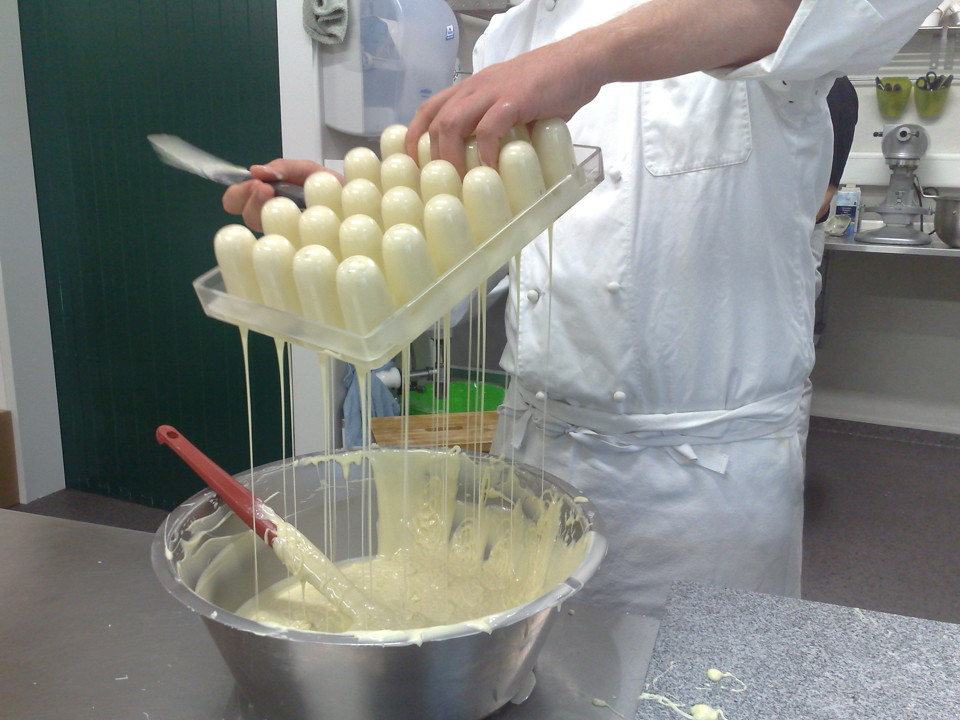
photo by vigfus birgisson
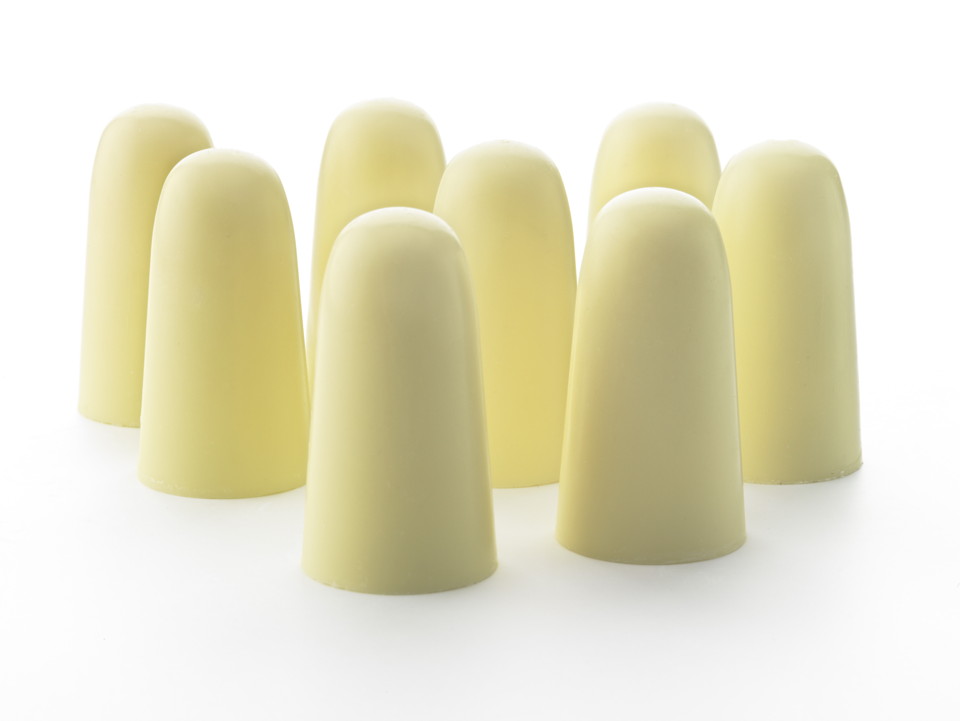
photo by vigfus birgisson
The "Designers and Farmers Project" is a pioneer icelandic project. Two professions are led together to create a unique product by the collaboration of designers and farmers.
The objective is to develop regional foods based on the highest quality with direct cultural relevance.
The project draws upon Iceland’s long history of farming and combines it with one of its newest industries – design. The aim is to bring financial gain to the farmers involved by collaborating with designers. In such a small country as Iceland, models like this one are very likely to have a multiplying effect and thus strengthening the competitive edge of icelandic farmers.
The project began in 2007 and was developed by the Iceland Academy of the Arts as a course for students in product design.
In 2008 the project was funded by The Technology Development Fund at the Icelandic Centre for Research.
There is a research phase which is a multidisciplinary process were food scientists, culinary experts, business and farmers join forces with the design team. Each time one farm is invited to this phase and at the end of this research period, a fully developed product ready for production is handed to the farm.
The "Skyrkonfekt" from the dairy farm Erpsstaðir is the third ready to launch project.It is a quality treat, coated with Valrhona chocolate and filled with homemade skyr . The "Skyrkonfekt" is produced at the farm Erpsstaðir and was officially launched during last "DesignMarch" in Reykjavík.

